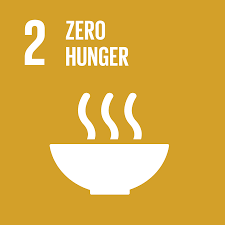Institutional ImpactAccess to university facilities to local farmers and food producers(http://uvas.edu.pk/facility/u-d-l/index.htm) Our mission is to protect and promote animal and human health through early detection and monitoring of animal diseases.The University Diagnostic Lab (UDL) of the University of Veterinary & Animal Sciences, (UVAS) Lahore is a national leader in providing rapid diagnosis of animal diseases, identifying emerging diseases, developing new diagnostic methods and training diagnosticians, and veterinarians. Recently, UDL has merged with newly formed Institute of Microbiology, UVAS. UDL serves the interests of the livestock and poultry industry, animal research scientists and educators, and companion animal owners. In 2009, UDL became the Pakistan's first ISO 17025 accredited veterinary disease diagnostic lab that provides ISO-certified diagnostic tests for the identification and monitoring emerging diseases. UDL faculty also works on developing new diagnostic methods. The lab obtained its accreditation from Pakistan National Accreditation Council (PNAC), which has mutual recognition arrangements (MRAs) with International Laboratory Accreditation Cooperation (ILAC) and Asia Pacific Laboratory Accreditation Cooperation (APLAC). It is a milestone in the history of UVAS and livestock sector of Pakistan that a veterinary disease diagnostic laboratory's results are now acceptable worldwide. The lab has also implemented a computer based "Diagnostic Information Management System (DIMS)" to ensure the good lab practices (GLP) and confidentiality of the client results. UDL provides quality diagnostic services for all animal species, including necropsy of birds, bacteriology, clinical chemistry, serology, virology, parasitology, molecular diagnostics, and toxicology. (http://uvas.edu.pk/facility/u-d-l/index.htm)
(http://uvas.edu.pk/facility/QOL/index.htm) Quality of food of animal origin has been a main concern and on account of poor knowledge, lack of sophisticated equipments and techniques, non-availability of suitable labs, no efforts to improve the quality of the food in Pakistan had been made. It is a bare fact that animals and plants are constantly exposed to a variety of potentially harmful chemicals/bio-chemicals and pathogens in the polluted environment.There is indiscriminate spray of pesticides on cotton and rice crops. Residues of these pesticides are transferred to animal or poultry through consumption of feed containing chemically contaminated cotton seed cake and the rice. Similarly, there is contamination of disinfectants, antibiotics, mycotoxins etc., in feed of poultry and dairy animals that are excreted in milk, meat or eggs and subsequently enters in our food chain. These chemical or biological toxins or pathogens are posing serious human health hazards. The toxic effects in human may be manifested at population, individual, tissue, cellular or molecular level. Some effects such as death, acute respiratory illness, skin rashes, toxic hepatitis are apparently visible while some time hidden serious efforts such as immuno-suppression, reproductive/fetal abnormalities, teratogenic, mutagenic/carcinogenic effects etc. Reduce growth are not uncommon. The nervous system is a prominent target when toxins can induce acute psychosis, memory impairment, neuropathy and tremor. Adverse consequences of such potential toxicities are illness leading to disability, anxiety, stress, chronic frustration, anger and emotional discomfort. (http://uvas.edu.pk/facility/QOL/index.htm) |


